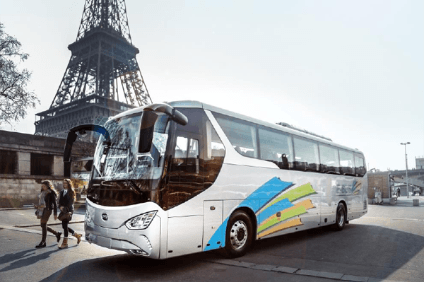
BYD says all vehicles currently using diesel can be replaced by electric versions as the move towards alternative propulsion gathers pace.
The diesel sector has endured sustained attacks during the past few years as health concerns have grown, leading the industry to mount a robust defence of the sector, which directly employs for example, 12,000 people in France.

Discover B2B Marketing That Performs
Combine business intelligence and editorial excellence to reach engaged professionals across 36 leading media platforms.
The Shenzhen-headquartered automaker however, is convinced its electric offer, which has seen many Chinese cities convert to all-electric bus fleets, will prove convincing temptation for diesel owners to switch energies.
“We don’t belong to the old industry, so we don’t need to reinvent ourselves,” said BYD Europe deputy MD, Marco Bos at the recent Forum on the European Automotive Industry (FEAL) in Lille, grouping suppliers, OEMs and government officials in France’s primary manufacturing region for the sector.
“We have electrification in our DNA. It is not just about making an electric car – it is about the full ecosystem. During the last three years we were the largest manufacturer and supplier of plug-in vehicles – 95% of our vehicles are sold in China.
“We firmly believe everything now running on diesel can be electric. China has a lot of pollution in its cities. We started with a joint venture with the city [Shenzhen] – it was quite a success and the city gradually started to increase electric buses. All diesel buses were converted to electric.”
Information from the Shenzhen government indicates the city was the world’s first to electrify 100% of its bus fleet and is now home to the largest number of such vehicles on the planet at nearly 16,500. Equally, there are more than 12,500 electric taxis in Shenzhen, around 62% of the total.
According to the same government source, in one year, the electric buses could save the energy equivalent of 366,000 tons of standard coal, replacing 345,000 tons of fuel and reducing carbon dioxide emissions by 1.35m tons. The e-taxis will save the energy equivalent of 119,000 tons of standard coal, replacing 116,000 tons of fuel.
Shenzhen was chosen in 2009 as one of the 13 cities to pilot a national new-energy vehicle programme.
In 2017, the city offered US$490m in subsidies for e-buses and the construction of charging facilities. The city has encouraged cab operators and private investors to invest in charging poles and stations for e-taxis.
The BYD Europe chief added the manufacturer had been producing batteries for more than 20 years, but was more focussed on the transportation side.
“A bus is a totally different process than a passenger car,” said Bos. “We don’t want to transport batteries – we want to transport people.”
BYD also said it had not yet decided on a European launch but noted: “Some day we will.”






